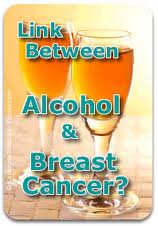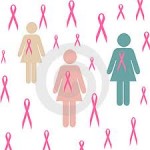 Back in the early 2000s flawed reports surfaced that suggested hormone replacement therapy (HRT) was linked to increased risks of heart disease and breast, ovarian and womb cancers--scientists recently concluded these theories are false. This new research, which followed women for a decade, has found no evidence that HRT is linked to any life-threatening condition! This is good news for the millions of menopausal women who may want to use HRT to control their hot flashes, night sweats, and depression.
Back in the early 2000s flawed reports surfaced that suggested hormone replacement therapy (HRT) was linked to increased risks of heart disease and breast, ovarian and womb cancers--scientists recently concluded these theories are false. This new research, which followed women for a decade, has found no evidence that HRT is linked to any life-threatening condition! This is good news for the millions of menopausal women who may want to use HRT to control their hot flashes, night sweats, and depression.
HRT boosts levels of estrogen and progesterone and is the most widely recognized therapy to treat severe menopausal symptoms. In the 1940's, the FDA approved the use of estrogen to treat hot flashes associated with menopause. Because women felt better while taking hormones, the list of other beneficial claims relative to the effects of aging grew despite the lack of extensive research. In 1990, the FDA found that the research done to date was not adequate to take hormones to prevent conditions like heart disease. This led to an extensive 15 year, multiphase drug trial called the Women's Health Initiative on hormone therapy for menopausal women, which caused widespread uncertainty for women regarding the safety of hormone therapy and caused many to stop using HRT completely.
Yet this new study by the New York University school of medicine tracked 80 women using HRT for 10 years and compared them with a control group who were not using the medication. The HRT group suffered no more incidences of cancer, diabetes, or heart disease than the control group. Menopausal symptoms can be frustrating and can interfere with daily life. Knowing that there are safe therapies to control these symptoms should be a comfort for women everywhere!
Check out the Women's Health Research Institute's menopause website (menopause.northwestern.edu) to learn more about symptoms and therapy options!
Source: The Telegraph

 An analysis among more than 40,000 postmenopausal women who were in the California Teachers Study was carried out to determine if there were differences in risk of breast cancer among women consuming alcohol according to their previous or current use of hormone therapy (HT). In the cohort, 660 women were diagnosed with invasive breast cancer during follow up.
An analysis among more than 40,000 postmenopausal women who were in the California Teachers Study was carried out to determine if there were differences in risk of breast cancer among women consuming alcohol according to their previous or current use of hormone therapy (HT). In the cohort, 660 women were diagnosed with invasive breast cancer during follow up. Women who tend to have high blood pressure (HBP) should be particularly vigilant if they are on oral contraceptives, are pregnant, or on hormone replacement therapy.
Women who tend to have high blood pressure (HBP) should be particularly vigilant if they are on oral contraceptives, are pregnant, or on hormone replacement therapy. Starting Hormone Therapy at Menopause Increases Breast Cancer Risk
Starting Hormone Therapy at Menopause Increases Breast Cancer Risk